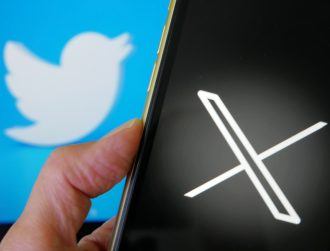
Image: © Koshiro/Stock.adobe.com
Mastodon is an open-source, decentralised microblogging platform that is pitching itself as an alternative to Twitter – and people are flocking to it.
With Elon Musk now in control of Twitter following the completion of his $44bn takeover, many users are considering leaving the platform.
While it is not yet clear what the Tesla boss plans to do with the social media site – apart from a potential reboot of Vine and revamp of the blue tick process – there is speculation about what the takeover means for content moderation in light of Musk’s stance on free speech.
In the immediate aftermath of the deal’s completion, the Network Contagion Research Institute found that use of the N-word on Twitter had increased nearly 500pc over the previous average in the space of 12 hours, spurred by people “trying to test the limits” of the platform.
While no immediate change in policy has been announced by Musk, the billionaire tweeted after the deal closed that new rules will be decided after “a content moderation council with widely diverse viewpoints” is set up and consulted.
“No major content decisions or account reinstatements will happen before that council convenes,” his tweet read.
Users flock to Mastodon
For those leaving Twitter, however, there are many other options available. These include Discord, CounterSocial, LinkedIn, Reddit, Cohost, Tumblr and Wikipedia founder Jimmy Wales’ WT.Social.
However, one platform in particular has been getting a lot of attention as Twitter users consider flocking elsewhere.
Decentralised microblogging platform Mastodon has seen a big surge in users since last week. The free and open-source platform tweeted on 30 October that it got more than 70,000 sign-ups on the day after the deal closed.
“Let’s keep the momentum going! The ‘public square’ of the web must not belong to any one person or corporation,” it added.
While it is currently gaining attention, Mastodon is not a new development. It was launched in 2016 by German developer Eugen Rochko as a decentralised, open-source social media platform.
Rochko said on Mastodon that the platform gained 22,139 users in the week leading up to the Twitter takeover and nearly 71,000 on the day after the deal closure was announced. According to Sensor Tower data, the Mastodon app also saw a record number of downloads.
Still, it is a far cry from Twitter’s nearly 240m daily active users.
How Mastodon works
Mastodon is similar to Twitter in style, featuring a feed with ‘toots’ instead of tweets, a 500-character limit per post and use of hashtags and mentions to find posts. It can be accessed through an app as well as on desktop.
But the microblogging platform’s ad-free services are offered through a large number of individual servers or nodes.
Each has its own code of conduct, terms of service, privacy options and moderation policies, in line with its decentralised identity. Users can search servers by topic or language, and choose one to join.
Looks like hosting your own Mastodon server is going to cost less than paying for a blue checkmark on Twitter. Except when you pay to host your own Mastodon server, you own your data, identity, and social graph fully.
— Mastodon (@joinmastodon) November 1, 2022
Mastodon explained its decision to not run as a single website in a recent thread on Twitter.
“Some people ask us why Mastodon isn’t a single website. A single website that can serve the whole world requires so much computing power, infrastructure and engineering, that it is practically impossible to do without big capital and monetisation,” the platform tweeted.
Mastodon argued that such monetisation usually means more ads and an invasion of user privacy. A single website also means that a company is in full control of the platform. “If they do what you don’t want them to do, you’re out of luck,” Mastodon went on.
“So why is Mastodon not a single website? Because if it was, it would be doomed to recreate all that you hate about the social media platforms you’re trying to leave. Decentralising the platform, building it on top of a protocol, is how it breaks the cycle.”
10 things you need to know direct to your inbox every weekday. Sign up for the Daily Brief, Silicon Republic’s digest of essential sci-tech news.






